Heritage Crafts: Some skills risk becoming extinct in UK, charity warns
- Published
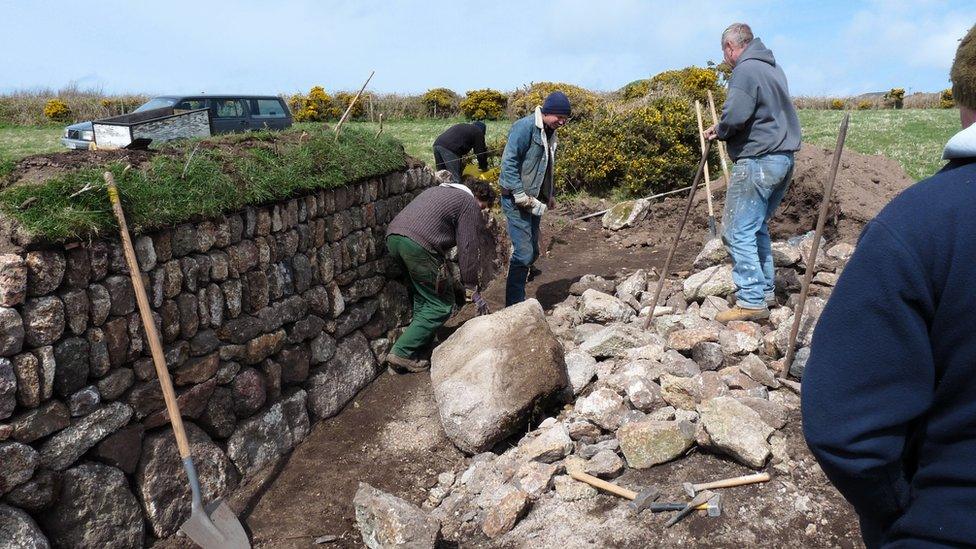
Many Cornish hedges are thousands of years old, preserving field patterns and providing wildlife habitats
A new report has warned that several traditional crafts in the UK are at a risk of becoming extinct.
Research by the Heritage Crafts charity, external has resulted in 17 new additions to a so-called "red list" of endangered skills in the UK.
This includes straw hat weaving, lacquerwork, building wooden boats, and the making of musical bows.
It cited a range of factors including high energy prices, cheaper overseas production and dwindling interest.
At least five traditional crafts are believed to have disappeared from British shores over the last 15 years.
Those listed as "extinct" are the production of hand-stitched cricket balls, lacrosse sticks, handmade paper production - known as mould and deckle - harking back to the 18th Century and gold beating which suffered due to cheaper imports mostly from China.
Mouth-blown flat glass-making is the latest to be categorised as extinct, according to the third edition of the report released on Thursday.
A heritage craft is defined as "a practice which employs manual dexterity and skill at the point of production, an understanding of traditional materials, design and techniques, and which has been practised for two or more successive generations".
Skills under threat
The Red List of Endangered Crafts was first created in 2017 with the intention of raising awareness around disappearing traditional skills in the UK.
This is the charity's first update in two years and it assessed a total of 259 crafts at risk of disappearing. Of those, 146 made it onto the Red List with 62 classified as critically endangered and 84 as endangered.
Five new crafts have been added to the critically endangered category which means they are on the verge of extinction because there are very few practitioners or trainees left for skills to pass on.
Among those newly added to the endangered category is Cornish hedging and marionette-making.
The effects of the COVID-19 pandemic, "continuing uncertainties around Brexit and structural issues relating to the funding for skills transmission" have been cited as among the main reasons for the decline.

King Charles appeared on a special edition of the Repair Shop last year featuring blacksmithing, stonemasonry and wood carving
A lack of mainstream appeal also means many craftspeople have to rely on niche markets overseas, which has contributed to the problem.
Heritage Crafts warns that losing just one craft can lead to a negative knock-on effect on others.
It said losing the capacity to make mouth-blown flat glass in the UK has affected the restoration of historic stained glass windows, in local churches or ancient buildings for example, which is why it has now been added to the Red List.
"Stained glass window makers and restorers are now forced to buy from suppliers in France and Germany, with prices doubling overnight as a result of import taxes and the energy crisis," the report from the charity said.
Mary Lewis, who led the research, said: "We know that heritage craft skills operate like an ecosystem; if we lose one part it can have devastating consequences on other parts of the system."
The non-profit and advocacy body is calling for more government support, saying the UK has "fallen behind the rest of the world" when it comes to the safeguarding of intangible "living heritage" in the form of knowledge, skills and practices.
The UK is one of 12 Unesco members that have not yet ratified the 2003 Convention on the Safeguarding of Intangible Heritage.
Protecting heritage
Endangered crafts can be brought back from the brink if provided with enough economic or public support.
The making of shinty sticks, used in a traditional team game mostly played in the Scottish Highlands, was moved out of the Red List's critically endangered category due to a change in fortunes.
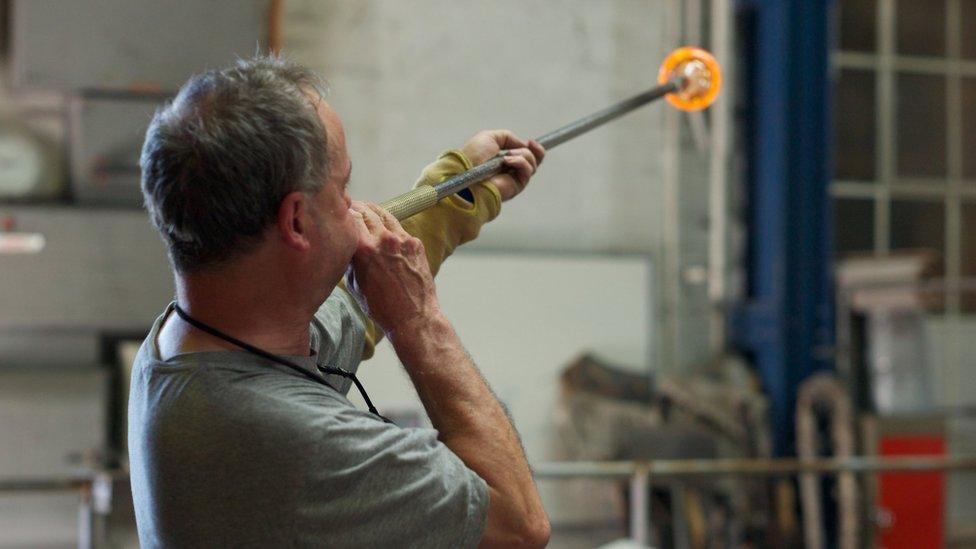
The only traditional stained glass manufacturer left in the UK, English Antique Glass, is hopeful it can resume production of mouth-blown flat glass sometime in the future.
The family-owned firm remains in business but was forced to stop producing this specific type of glass. They had unexpectedly received notice to leave its original site in Birmingham after 23 years due to redevelopment plans for the land their factory was located on.
They eventually decided to move its operations and join forces with sister company Original BTC, external which makes lighting in Oxfordshire. Glass production recommenced at the beginning of January. The firm also still has supplies of flat glass, with over 650 pieces in stock.
Hettie Bowles, Operations and Logistics Director at Original BTC said they remain optimistic for the future, stressing they retain the skills and knowledge to restart mouth-blown flat glass production if the circumstances are right.
"The last few years have taught us the importance of resilience when things don't always go to plan, not only with the relocation of English Antique Glass, but in the face of the huge increases in costs for raw materials and gas, as well as inflation in general."
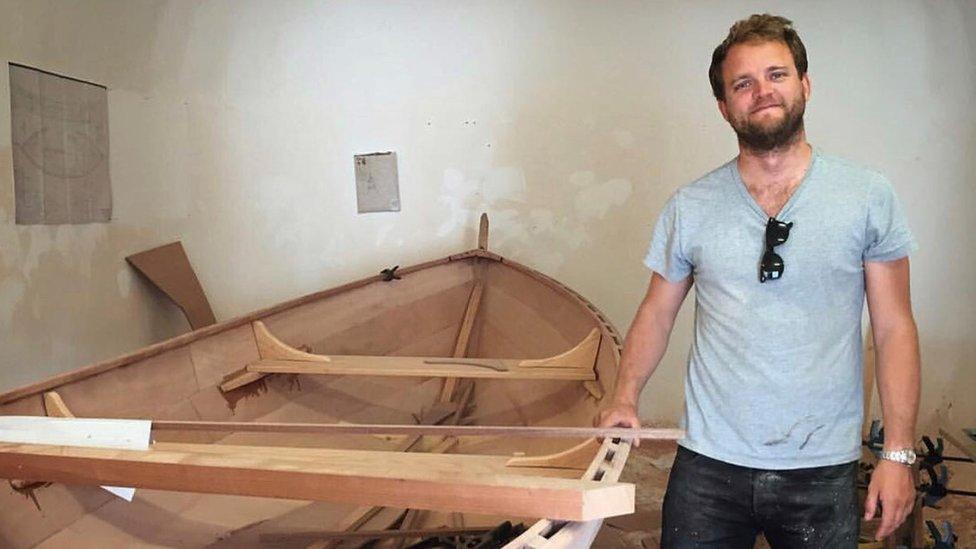
Patrick Wells built a wooden boat in his garage one summer which inspired him to set up a small craft business
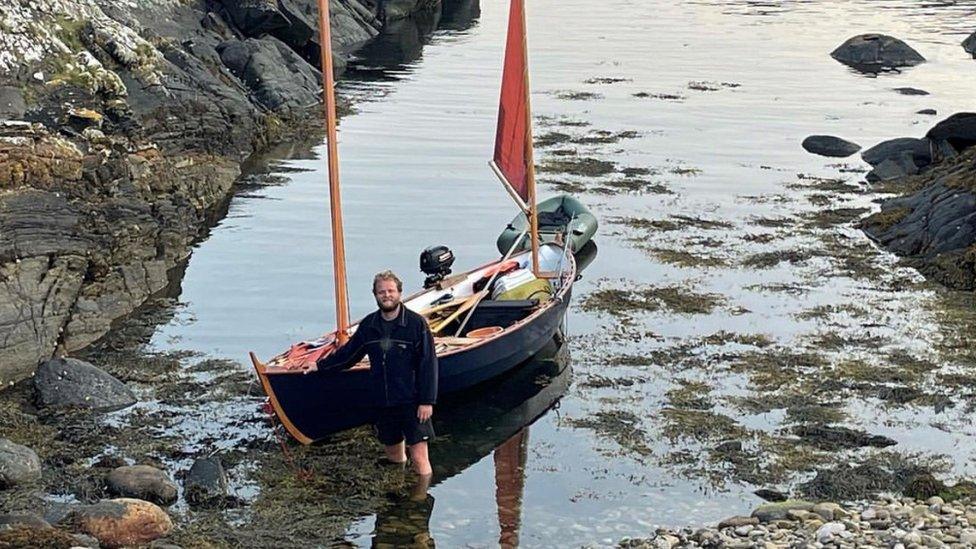
Mr Wells went sailing in Scotland with the boat he handbuilt
Bafta-winning filmmaker Patrick Wells is among those looking to preserve and resurrect the tradition of making things.
He set up an online craft school, external for aspiring artisans during the 2021 UK lockdown that is now a profitable small business.
Using production skills from his journalism background, he created video courses around wood whittling and basket weaving using sustainably sourced material such as willows grown in Somerset.
Mr Wells espouses the mental health and wellness benefits of people "working with their hands" and making handicrafts from home at their own pace.
"The experience made me realise that making things is incredibly good for your brain, and skills like this can be passed on to your kids," he said.
"There's a huge demand out there, particularly for professionals who spend most of their day behind a desk to learn traditional skills. It just needs to be easier to access."
- Published16 February 2023
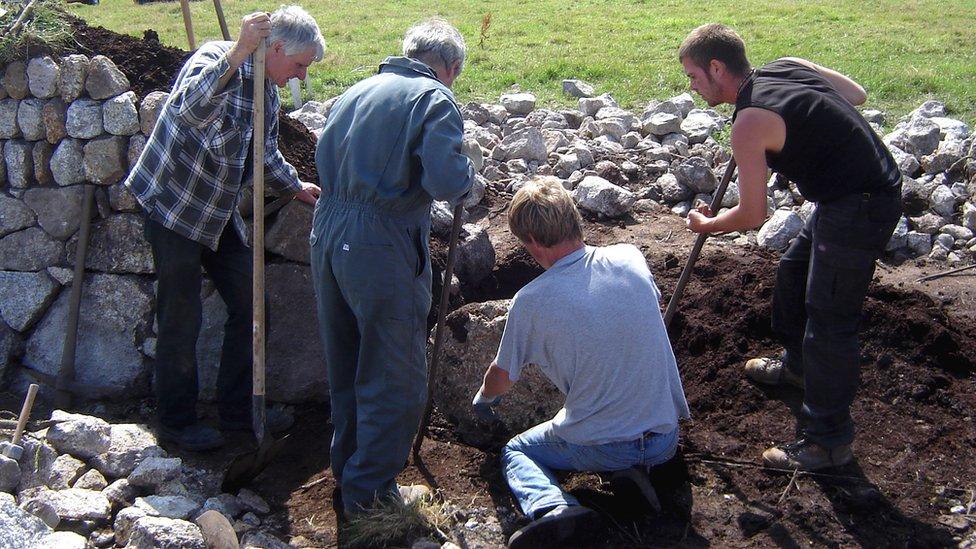
- Published12 October 2022
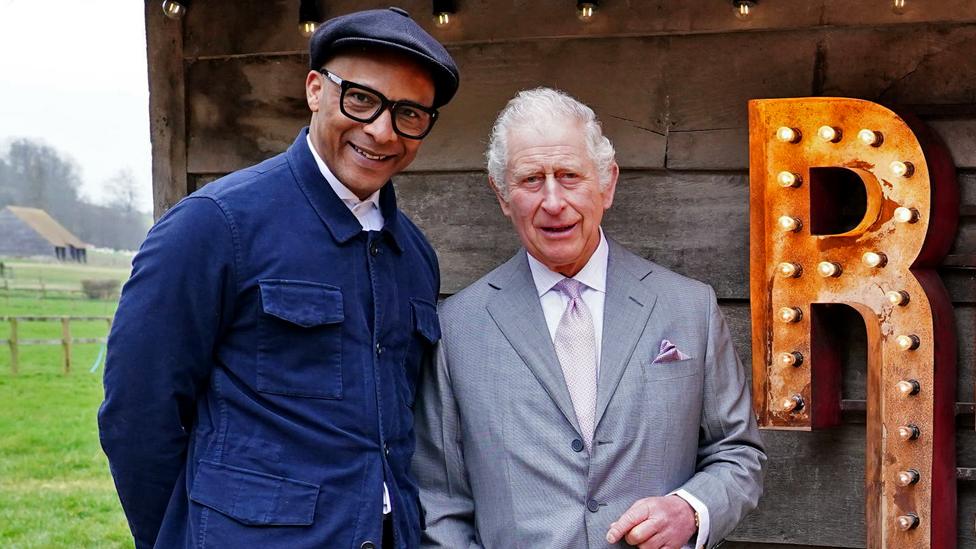
- Published1 September 2022
